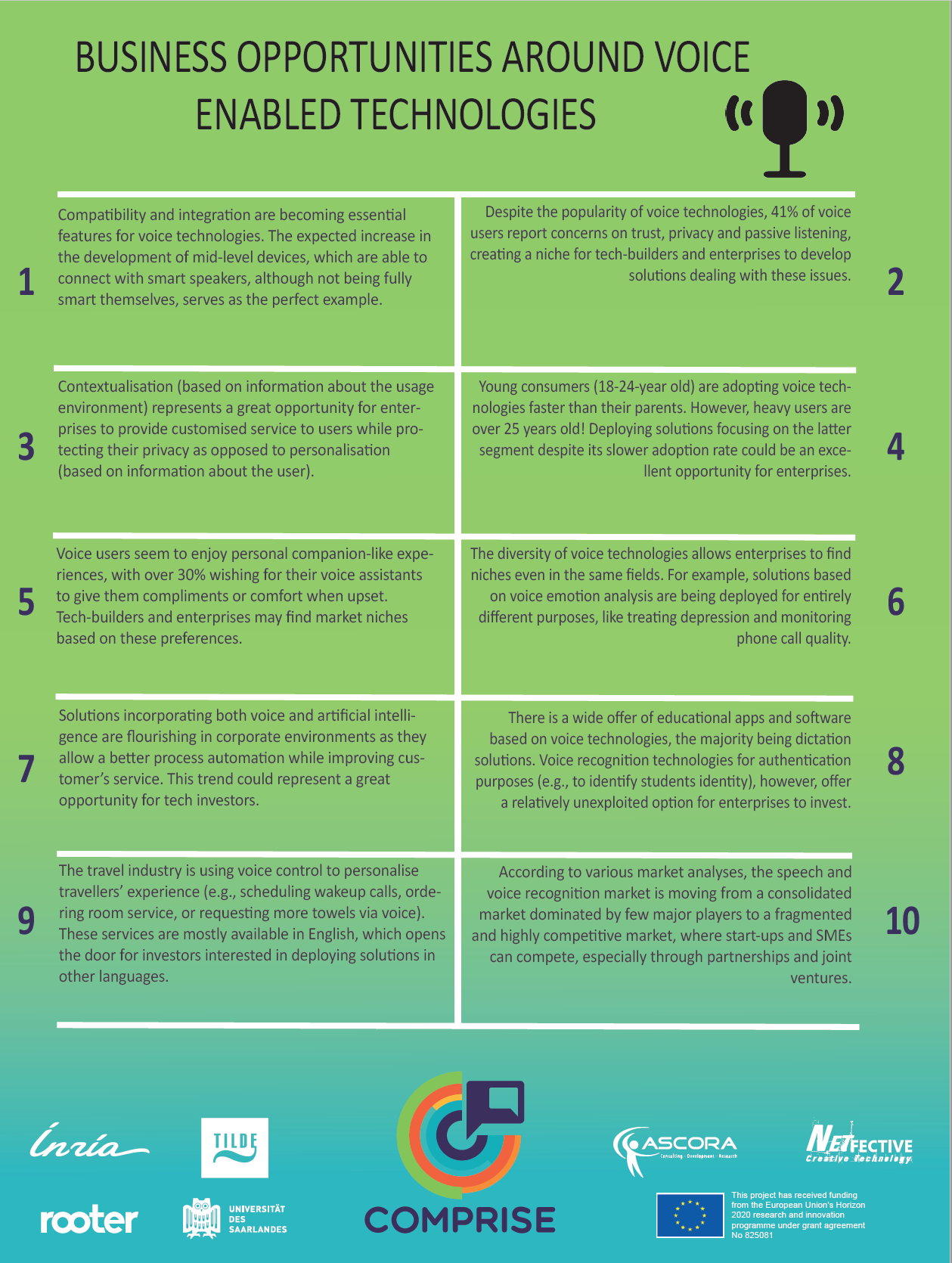- Compatibility and integration are becoming essential features for voice technologies. The expected increase in the development of mid-level devices, which are able to connect with smart speakers, although not being fully smart themselves, serves as the perfect example [Ref1].
- Despite the popularity of voice technologies, 41% of voice users report concerns on trust, privacy and passive listening, creating a niche for tech-builders and enterprises to develop solutions dealing with these issues [Ref2].
- Contextualisation (based on information about the usage environment) represents a great opportunity for enterprises to provide customised service to users while protecting their privacy as opposed to personalisation (based on information about the user).
- Young consumers (18-24-year old) are adopting voice technologies faster than their parents. However, heavy users are over 25 years old! Deploying solutions focusing on the later segment despite its slower adoption rate could be an excellent opportunity for enterprises [Ref3].
- Voice users seem to enjoy personal companion-like experiences, with over 30% wishing for their voice assistants to give them compliments or comfort when upset. Tech-builders and enterprises may find market niches based on these preferences [Ref4].
- The diversity of voice technologies allows enterprises to find niches even in the same fields. For example, solutions based on voice emotion analysis are being deployed for entirely different purposes, like treating depression and monitoring phone call quality [Ref5].
- Solutions incorporating both voice and artificial intelligence are flourishing in corporate environments as they allow a better process automation while improving customer’s service. This trend could represent a great opportunity for tech investors.
- There is a wide offer of educational apps and software based on voice technologies, the majority being dictation solutions. Voice recognition technologies for authentication purposes (e.g., to identify students identity), however, offer a relatively unexploited option for enterprises to invest.
- The travel industry is using voice control to personalise travellers’ experience (e.g., scheduling wakeup calls, ordering room service, or requesting more towels via voice). These services are mostly available in English, which opens the door for investors interested in deploying solutions in other languages languages [Ref6].
- According to various market analyses, the speech and voice recognition market is moving from a consolidated market dominated by few major players to a fragmented and highly competitive market, where start-ups and SMEs can compete, especially through partnerships and joint ventures.
References:
[Ref1] 7 Key Predictions For The Future Of Voice Assistants And AI. Clearbridge Mobile
[Ref2] New report tackles tough questions on voice and AI. Microsoft
[Ref3] Prepare for the voice revolution. PwC
[Ref4] The Future of Voice Technology In the Enterprise. CISCO
[Ref5] Voice emotion analytics companies. Voice Tech Posdcast
[Ref6] How Can Voice Control Benefit the Travel Industry? Revfine.com
Developer survey: Since you are here and interested in our project, could you please spare a moment to share your concerns and answer 12 questions related to developing voice-enabled apps.





